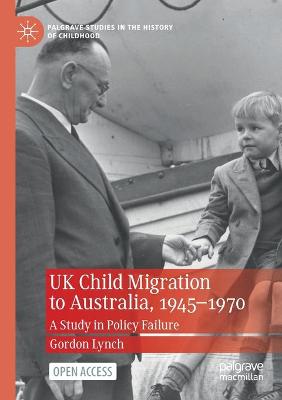Palgrave Studies in the History of Childhood
1 total work
This open access book offers an unprecedented analysis of child welfare schemes, situating them in the wider context of post-war policy debates about the care of children. Between 1945 and 1970, an estimated 3,500 children were sent from Britain to Australia, unaccompanied by their parents, through child migration schemes funded by the Australian and British Governments and delivered by churches, religious orders and charities. Functioning in a wider history of the migration of unaccompanied children to overseas British colonies, the post-war schemes to Australia have become the focus of public attention through a series of public reports in Britain and Australia that have documented the harm they caused to many child migrants.Whilst addressing the wide range of organisations involved, the book focuses particularly on knowledge, assumptions and decisions within UK Government Departments and asks why these schemes continued to operate in the post-war period despite often failing to adhere to standards of child-care set out in the influential 1946 Curtis Report. Some factors - such as the tensions between British policy on child-care and assisted migration - are unique to these schemes. However, the book also examines other factors such as complex government systems, fragmented lines of departmental responsibility and civil service cultures that may contribute to the failure of vulnerable people across a much wider range of policy contexts.
